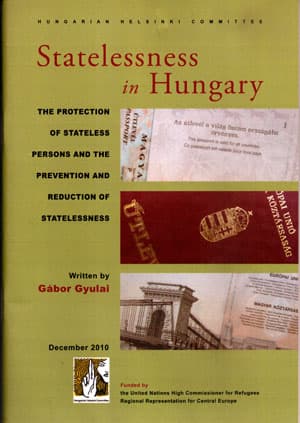Statelessness in Hungary (2010)
Having a nationality is like the air to breathe. One takes it for granted and only realises its importance when it is missing. Currently, there are at least 12 million stateless persons in the world, who lack not only a country to call home, but in many cases – without any official registration or documents – also a proper “legal existence”.
Statelessness has long been an unjustifiably forgotten issue of international protection and human rights. More than half-a-century after the adoption of the cornerstone 1954 Statelessness Convention, only a handful of countries operate a statelessness-specific protection regime, regulated in law.
Hungary took a pioneer step when in 2007 it established a statelessness determination regime, based on sophisticated legislative rules. The Hungarian statelessness-specific protection mechanism has been in the focus of international interest since its inception, yet no empirical research has been conducted so far on its actual functioning. This report aims to fill in this gap, as well as to examine whether effective mechanisms are in place for the prevention and reduction of statelessness in Hungary. The report’s conclusions have been drawn from desk research, analysis of administrative and judicial decisions on statelessness and the firsthand experiences of the Hungarian Helsinki Committee.
Supported by: UNHCR Regional Representation for Central Europe
